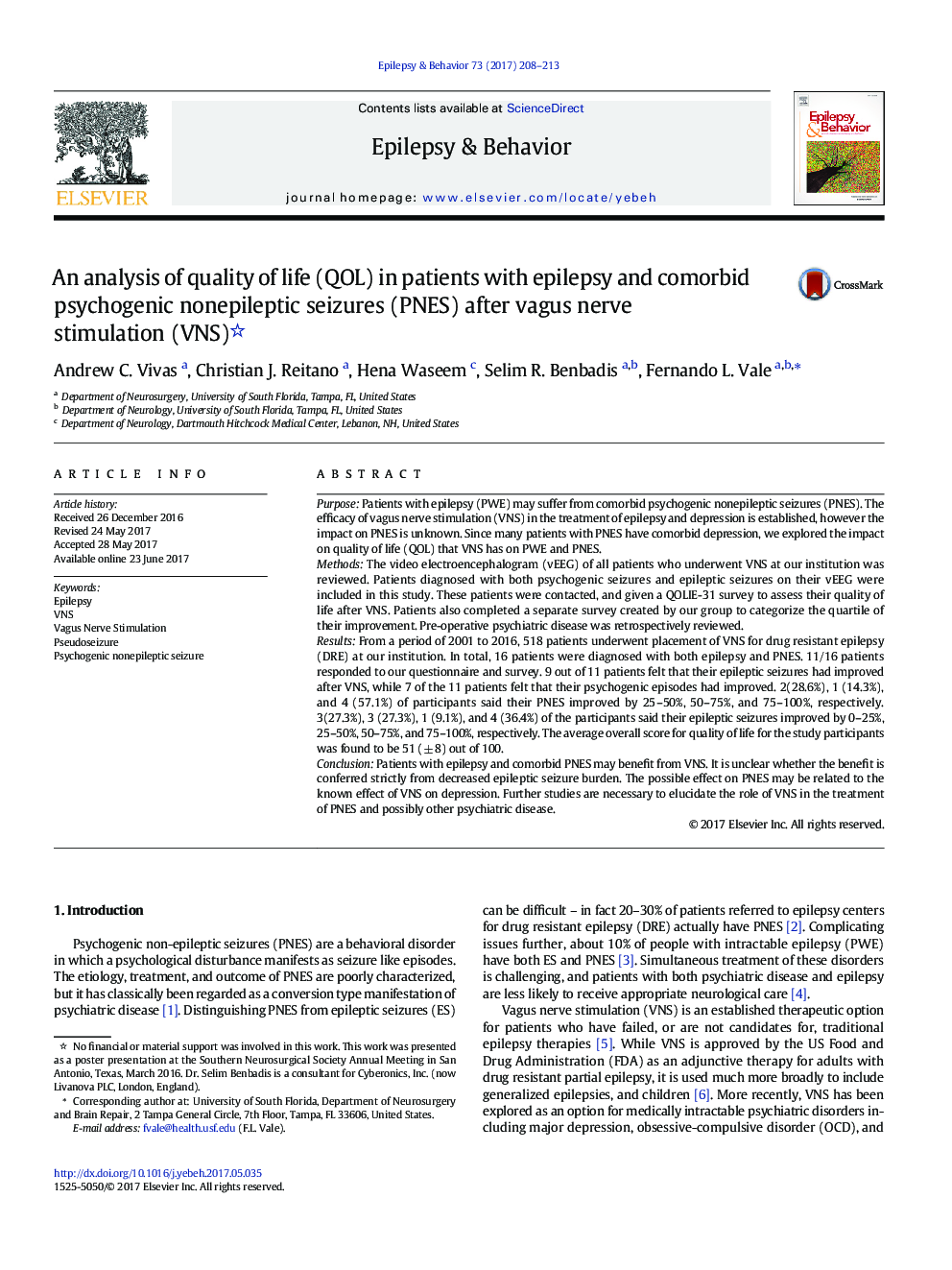| کد مقاله | کد نشریه | سال انتشار | مقاله انگلیسی | نسخه تمام متن |
|---|---|---|---|---|
| 5628364 | 1579820 | 2017 | 6 صفحه PDF | دانلود رایگان |

- The current indications for VNS are treatment resistant partial epilepsy and depression, but indications are expanding.
- There is a high incidence of co-morbid psychiatric disease in patients with epilepsy.
- VNS may be useful in the treatment of patients with epilepsy and psychogenic nonepileptic seizures.
PurposePatients with epilepsy (PWE) may suffer from comorbid psychogenic nonepileptic seizures (PNES). The efficacy of vagus nerve stimulation (VNS) in the treatment of epilepsy and depression is established, however the impact on PNES is unknown. Since many patients with PNES have comorbid depression, we explored the impact on quality of life (QOL) that VNS has on PWE and PNES.MethodsThe video electroencephalogram (vEEG) of all patients who underwent VNS at our institution was reviewed. Patients diagnosed with both psychogenic seizures and epileptic seizures on their vEEG were included in this study. These patients were contacted, and given a QOLIE-31 survey to assess their quality of life after VNS. Patients also completed a separate survey created by our group to categorize the quartile of their improvement. Pre-operative psychiatric disease was retrospectively reviewed.ResultsFrom a period of 2001 to 2016, 518 patients underwent placement of VNS for drug resistant epilepsy (DRE) at our institution. In total, 16 patients were diagnosed with both epilepsy and PNES. 11/16 patients responded to our questionnaire and survey. 9 out of 11 patients felt that their epileptic seizures had improved after VNS, while 7 of the 11 patients felt that their psychogenic episodes had improved. 2(28.6%), 1 (14.3%), and 4 (57.1%) of participants said their PNES improved by 25-50%, 50-75%, and 75-100%, respectively. 3(27.3%), 3 (27.3%), 1 (9.1%), and 4 (36.4%) of the participants said their epileptic seizures improved by 0-25%, 25-50%, 50-75%, and 75-100%, respectively. The average overall score for quality of life for the study participants was found to be 51 (± 8) out of 100.ConclusionPatients with epilepsy and comorbid PNES may benefit from VNS. It is unclear whether the benefit is conferred strictly from decreased epileptic seizure burden. The possible effect on PNES may be related to the known effect of VNS on depression. Further studies are necessary to elucidate the role of VNS in the treatment of PNES and possibly other psychiatric disease.
Journal: Epilepsy & Behavior - Volume 73, August 2017, Pages 208-213